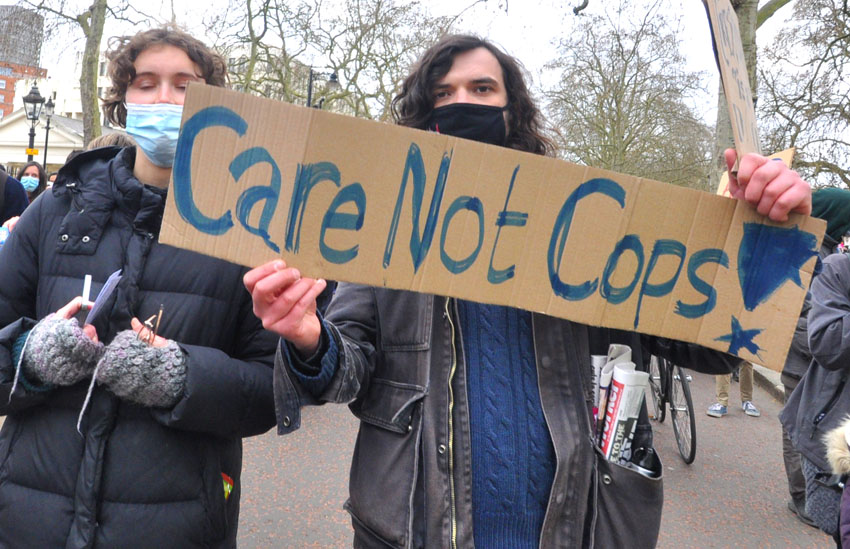DOCTORS, nurses and teachers have warned that the Police Bill will turn them into police informants.
The Bill, to be debated in the House of Lords this week, gives the police sweeping new powers to shut down protests that are ‘too noisy’, or ‘too disruptive’ as well as forcing frontline workers to hand over information about their patients or pupils and inform the authorities if they suspect them of criminal activity.
Describing the Police, Crime, Sentencing and Courts Bill as ‘oppressive’, 665 GPs, nurses, teachers and social, youth and outreach workers have written to the Home Secretary Priti Patel to warn that new requirements to report people to the police will force them to breach the confidence of those they work with. The new legislation also targets youth.
Under new government plans, teachers, nurses and police officers will be held accountable for failing to ‘spot warning signs’ of violent crime among young people.
The Tories have proposed a so-called ‘public health duty’. Warning signs suggested were ‘presenting in A&E with a suspicious injury, to worrying behaviour at school or issues at home’.
The letter’s signatories say they are ‘appalled’ by the proposals, which they believe ‘directly conflict with our duties and will actively put people we work with in harm’s way.
‘We believe that this Bill will hinder our ability as frontline workers to effectively support the people with whom we work by eroding relationships of trust and duties of confidentiality.
‘Most importantly, it will expand the criminalisation, surveillance and punishment of already-overpoliced communities.’
They also say the serious violence reduction orders will give police an ‘individualised, suspicionless’ stop and search power with minimal safeguards, with people likely to face ‘intrusive monitoring’.
Existing stop and search powers, which the government expanded this year by relaxing rules on searching people without suspicion, are already used disproportionately against black people who are nine times more likely to be stopped by police officers than white people.
HM Inspectorate of Constabulary found in February that forces were unable to explain the disparity.
Gavin Moorghen, of the British Association of Social Workers, said: ‘The duty of confidentiality is crucial to our ability to protect people’s dignity and privacy, foster relationships of trust, and deliver high quality care.
‘The policing Bill may soon force us to betray the hard-earned trust and relationships we have built with young people, as well as our professional duties, by requiring us to be complicit in their criminalisation, surveillance, and punishment.
‘The only effective approach to serious violence is to focus on the root causes such as poverty, racism and other forms of structural injustice.’
